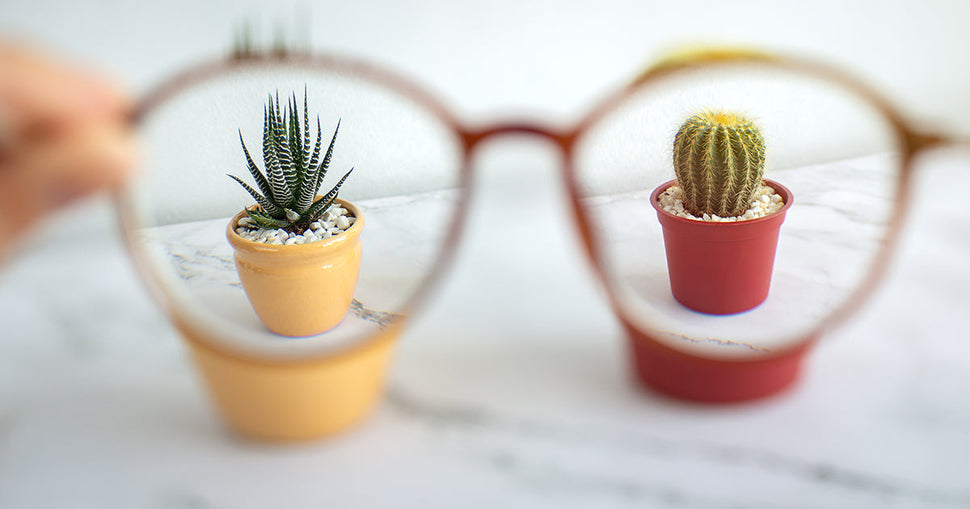What is myopia and can it be corrected?
02 Dec 2021
Do you find yourself straining your eyes to see things that are at a distance? If so, you might have myopia. Myopia causes you to become near-sighted, which means you find it difficult to see objects that are far away from you. Read on to learn more about myopia and its treatments.
Do you find yourself straining your eyes to see things that are at a distance? If so, you might have myopia. Myopia causes you to become near-sighted, which means you find it difficult to see objects that are far away from you. Read on to learn more about myopia and its treatments.
Is myopia a disease?
Myopia is an eye disorder which causes a defect in the way light rays bend or “refract” in the eyes. In a normally-functioning eye, when light enters , it passes through the cornea at the front of the eye and then falls on the retina which is at the back of the eye .
In people with myopia, light rays fall slightly ahead of the retina instead of falling onto it. As a result, light receptive cells on the retina are unable to sense light and your vision appears blurry. This is why we say myopia causes short-sightedness. In 2015, the WHO estimated that this disorder affects around 1.89 billion people in the world (1). The number was slated to increase to 2.56 billion people by 2020.
Symptoms
The definitive symptom of myopia is the inability to view objects that are situated at a distance beyond 1.2 metres. Near-sightedness can develop from an early age, between 6 to 12 years (2). A clear indicator of near-sightedness is blurry vision. Early signs of myopia in children might be difficulty reading the blackboard or playing sports due to blurry vision. Though myopia generally develops during childhood, the onset of this disorder can also happen later on in life.
Other symptoms associated with myopia are eye pain, persistent headaches, inflamed, red or watery eyes, and squinting.
Causes of myopia
Myopia can be caused by genetic and/or environmental factors.
Genetic factors: Mutations in certain genes have been associated with the development of myopia (3). Research about the link between genes and myopia is still underway, but studies have so far found that it is often passed down within families (4). If parents suffer from myopia, it is very likely that their offspring will also be short-sighted. Myopia due to genetic factors causes the eyeballs to grow larger than usual during the child’s development, which affects the way light is refracted inside their eyes.
Environmental factors: A study at the University of Sydney found that insufficient exposure to sunlight can cause myopia in children (5). Sunlight aids the production of retinal dopamine, which keeps the eyes healthy. Apart from this, spending a lot of time looking at screens that emit blue light or reading in low light conditions could lead to the onset of myopia in children and adults. Myopia is on the rise today because of sedentary jobs and overexposure to digital screens.
Myopia can also be caused by straining your eyes too much. Engaging in tasks that require high attention to detail like knitting, stitching, painting or sculpting miniature artworks can cause you to develop myopia.
Treatment
While there is no cure for myopia, it is easily corrected. The most common treatment for this disorder is prescription glasses. Prescription lenses focus light correctly within your eye, thus correcting short-sightedness. Contact lenses work on the same principle except they are worn directly on the surface of the eye.
Another effective myopia treatment especially for children is atropine eye drops (6). These eye drops help to slow the progression of myopia by 50%-60% (7). Critical cases of myopia can be corrected with surgery. Certain surgeries restructure the cornea so that light is refracted properly through it onto the retina.
There is another myopia treatment called Corneal Refractive Therapy which is a non-surgical procedure. This treatment requires the patient to wear a series of specially designed contact lenses which help reshape the cornea over a period of time.
Complications
Complications can develop if myopia is left untreated. The various health risks associated with myopia include the development of cataracts, retinal detachment, loss of central vision due to myopic macular degeneration, and other conditions which impair vision.
When to see a doctor
You should immediately consult an ophthalmologist (eye specialist) if you’re having trouble viewing objects at a distance, experiencing headaches or eye strain, or your eyes are watering for no apparent reason.
Lifestyle & home remedies
It is not always possible to stop the development of myopia. But you can prevent it from progressing further by taking good care of your eyes. Here’s how you can do this:
- Reduce screen time as much as possible. You could do this by taking frequent digital detoxes.
- While working on studying on a computer, look away from the screen every 20 minutes. Look outside the window, blink your eyes and practice a few eye exercises.
- Consume natural supplements like Setu Eye: Relief to boost your eye health. These supplements contain vitamins that strengthen your eyes, reduce blue light damage and moisturise and soothe your eyes.
- Spend more time outdoors in natural light.
- Protect your eyes from the sun’s UV rays by wearing sunglasses.
- Get 7-9 hours of sleep as this can reduce eye strain.
- If you wear glasses, get your eyes checked frequently. This will help you keep your lens prescription up-to-date and allow your doctor to spot any developing eye conditions on time.
Myopia is a common disorder that affects a large section of the population. Taking good care of your eyes is vital, especially in today’s world of screens. If you have myopia, try your best to limit eye strain, as your myopia can get progressively worse.
FAQs
1) What kind of lenses are used to correct myopia?
Concave lenses, commonly called ‘minus powered’ lenses are used to correct myopia. They refocus light so that it falls on the retina.
2) Is myopia considered a disability?
No. Myopia is not considered a disability. Once corrected, this disorder does not interfere with daily life.
3) What kind of food can I eat to promote eye health?
Vegetables like carrots, bell peppers and broccoli are very good for the eyes. Foods rich in omega 3 fatty acids like salmon and other fish also strengthen eye health.

- Choosing a selection results in a full page refresh.
- Press the space key then arrow keys to make a selection.





